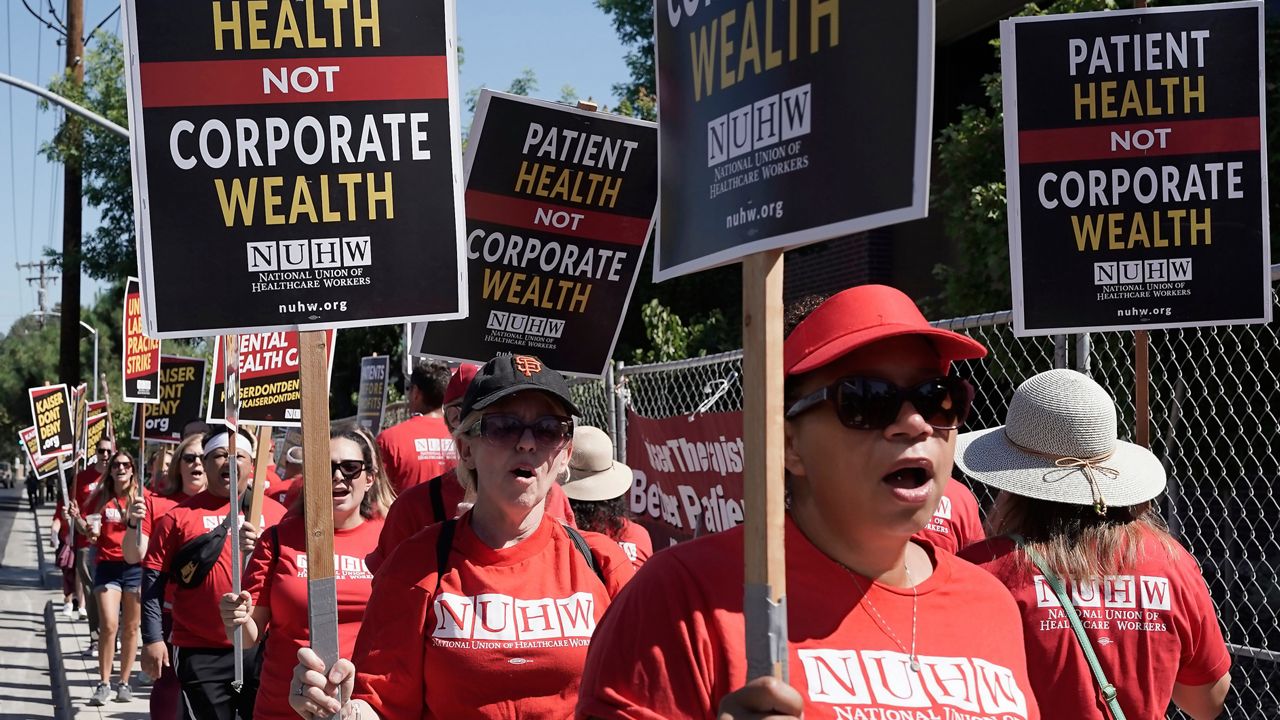SAN FRANCISCO (AP) — Nearly 2,000 Kaiser Permanente psychologists, therapists, social workers and other mental health workers in Northern California began an open-ended strike Monday over staffing shortages that their union said have led patients to wait for months to get help.
The National Union of Healthcare Workers, which represents the workers, is negotiating a new contract with the Oakland-based health giant. It said the strike is to demand Kaiser hire more mental health workers to ease the burden put on the current staff.
“Our clients are not able to get the care they need and are waiting longer and longer. We have people waiting six to eight weeks to get an appointment,” said Jeffrey Chen-Harding, a clinical social worker with Kaiser who was picketing Monday in San Francisco.
Kaiser Permanente said in a statement it has hired hundreds of new mental health workers, including 200 since January 2021, and pointed out the shortage in mental health care professionals is happening nationwide.
The health care provider said that what's at issue is the union’s demand to increase the time therapists spend on tasks other than seeing patients. The union is demanding that 9 hours be allotted for administrative work, which would leave only 31 hours to see patients per week, the company said. It said it proposed increasing the time for administrative tasks from 6 to 7.2 hours, leaving 32.8 hours to see patients.
“Our patients cannot afford a proposal that significantly reduces the time available to care for them and their mental health needs,” the company said.
Chen-Harding said that what Kaiser calls an administrative task is actually important work related to patient care.
“What they’re calling administrative time, it’s actually time when I am calling people who are in a crisis. It may be time when I am learning about the patient that I’m about to meet with," he said.
A shortage in mental health clinicians has been a sticking point between the company and the union for years. In December 2019, Kaiser mental health care workers held a five-day strike over staffing shortages.



